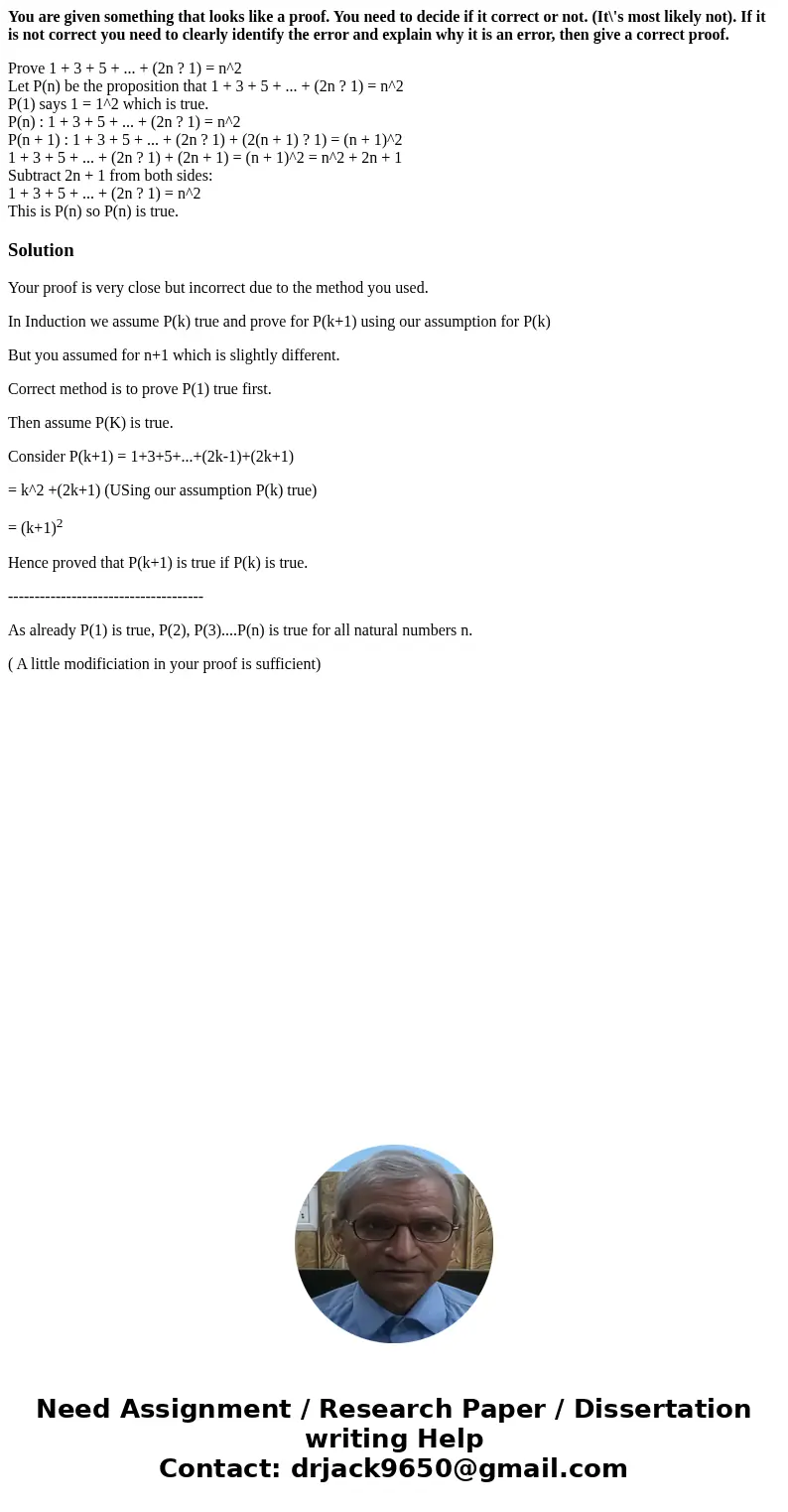You are given something that looks like a proof You need to
You are given something that looks like a proof. You need to decide if it correct or not. (It\'s most likely not). If it is not correct you need to clearly identify the error and explain why it is an error, then give a correct proof.
Prove 1 + 3 + 5 + ... + (2n ? 1) = n^2
Let P(n) be the proposition that 1 + 3 + 5 + ... + (2n ? 1) = n^2
P(1) says 1 = 1^2 which is true.
P(n) : 1 + 3 + 5 + ... + (2n ? 1) = n^2
P(n + 1) : 1 + 3 + 5 + ... + (2n ? 1) + (2(n + 1) ? 1) = (n + 1)^2
1 + 3 + 5 + ... + (2n ? 1) + (2n + 1) = (n + 1)^2 = n^2 + 2n + 1
Subtract 2n + 1 from both sides:
1 + 3 + 5 + ... + (2n ? 1) = n^2
This is P(n) so P(n) is true.
Solution
Your proof is very close but incorrect due to the method you used.
In Induction we assume P(k) true and prove for P(k+1) using our assumption for P(k)
But you assumed for n+1 which is slightly different.
Correct method is to prove P(1) true first.
Then assume P(K) is true.
Consider P(k+1) = 1+3+5+...+(2k-1)+(2k+1)
= k^2 +(2k+1) (USing our assumption P(k) true)
= (k+1)2
Hence proved that P(k+1) is true if P(k) is true.
-------------------------------------
As already P(1) is true, P(2), P(3)....P(n) is true for all natural numbers n.
( A little modificiation in your proof is sufficient)

 Homework Sourse
Homework Sourse